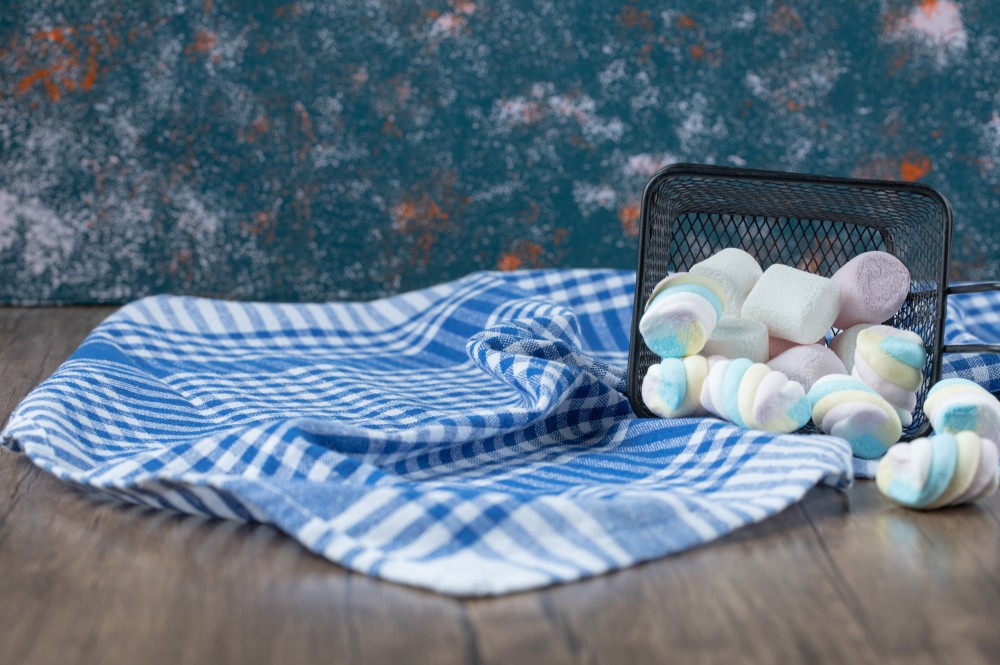- Empty cart.
- Continue Shopping
A Comprehensive Guide to Buying the Perfect Kitchen Towels for Your Home

Kitchen towels are one of the most versatile and essential things in any kitchen. They may be a minor detail, but the right kitchen towel will make all the difference when it comes to maintaining a clean and efficient cooking space.
Whether you are drying your hands, wiping down the counters, or handling hot cookware, the right towel can handle each task with ease. Here in this guide, we will explore how to choose the best kitchen hand towels, look at different materials, sizes, and styles, and offer tips on finding durable, highly absorbent options.
Why Quality Kitchen Towels Matter
The selection of kitchen towels should be taken with a broader perspective. Kitchen hand towels are not merely aesthetic in purpose. They are meant to be functional, durable, and easy to clean. Towels that are good in quality will be a wise investment in your kitchen.
They enable you to move a hot pot without getting scalded, to wipe spills quickly, and dry hands without that itchy feeling. More important, though, is the aspect that they reduce the amount of disposable paper towels in use within the kitchen, thereby promoting a greener kitchen, and it saves a great deal of money too.
Types of Kitchen Towels and Their Uses
Not all kitchen towels are the same. Different types serve specific purposes in your kitchen, and knowing which towel to use for which task will help you keep your kitchen tidy and organized.
- Kitchen Hand Towels
The kitchen hand towels are meant for drying hands after washing. They are usually small, absorbent, and durable, and can be washed often. Good kitchen hand towels not only absorb moisture fast but also dry quickly. This reduces the possibility of bacterial growth.
- Dish Towels
The dish towels are used for drying dishes, utensils, and glassware. A dish towel is softer than the kitchen hand towel and made to leave streak-free dishes. It is normally made from soft, lint-free materials in order not to scratch the glassware or chinaware.
- Tea Towels
Tea towels are thin, decorative, and usually made of linen or cotton and are utilized for wrapping baked products; as a lining tray; just for aesthetic purposes inside the kitchen. Because of this thin texture, it is useful in buffing and can handle delicate things.
- All-Purpose Towels
All-purpose towels are the workhorses of the kitchen. Made from heavy-duty materials, these towels are ideal for wiping countertops or to handle spills and general cleaning, Usually more in size and made of a very absorbent material to face heavy-duty application, everything becomes easy for you using these towels.
- Chef Towels
Each great chef knows the estimation of a fantastic kitchen towel and dependably has one next to them. Truth be told, the best chef has a heap of towels available to them, so they can get a new one for a moment, to manage that spill or hot thing prepared to leave the stove and even for cleaning knives and cutting boards in between.
Material Choices and their Benefits
The material of a kitchen towel is made from determines its functionality. Here are some popular materials and why they might be the right choice for your kitchen needs:
- Cotton
Cotton is, by far, the favorite when it comes to kitchen towels and for a good reason. The cotton kitchen towels are soft, highly absorbent, and durable. These can undertake heavy-duty tasks without getting worn out easily and are easy to clean and maintain. They come in various thickness, so you can have light ones for polishing and heavy ones for drying dishes and managing spills. What’s more, cotton offers eco-friendly benefits as it is a renewable and biodegradable material.
- Microfiber
Microfiber towels are ultimate in absorbing and quick-drying properties. As they can soak up their weight many times in water, microfiber is particularly good for heavy cleaning works, such as scrubbing sinks or floors. Conversely, microfiber is a little too much of a synthetical substitute for drying one’s hands or washing dishes, so they are best applied for heavier-duty cleaning like cleaning appliances or countertops.
- Linen
Linen is one of the oldest fabrics for teach towels and often used as decoration. Towels made of linen are not very absorbing but very light in weight and great for sensitive chores. Linen is richly textured and gives the kitchen an elegant feel.
- Terry Cloth
This is an exceptionally spongy cotton material with circles. It is utilized for hand towels, for counter towels or bar wipe towels, additionally called just bar towels, and for dish towels.
- Blends
Some kitchen towels are blended of materials, such as cotton and polyester. Blended towels offer the benefits of both materials, such as durability and quick drying, but are not as absorbent as 100% cotton.
Choosing the Right Size and Design
The size of your kitchen towels will depend on their intended use. Typically, kitchen hand towels should be small enough to fit within your reach so they can be hung in easy access. Dish towels would be a little larger, for greater surface coverage, when you are drying dishes.
Design is another thing, especially if you like to maintain your kitchen in an uniformed manner. Kitchen towels are available in numerous colors, patterns, and textures. Neutral colors include white, gray, and beige that easily blend with any type of kitchen, while bold patterns add personality. For everyday use, plain textured cotton is the best as it is easy to clean and maintain.
Other Factors
The absorbency of a kitchen towel is one of the most important factors to consider. Generally, cotton and microfiber are the most absorbent. The thicker ones will absorb more liquid, while the thinner ones are better for polishing and light drying.
Durability may be another feature which can be needed in this instance because the towels get heavy ones it is used for wiping off water from surfaces. Always get towels with reinforced edges. Ensure these dyes are color retaining, Good quality towels retain their softness while under frequent washing. Maintain their absorbency as well during frequent washing.
Maintenance and Care Tips
To keep your kitchen towels in top condition, it is crucial to follow proper care instructions. Here are some tips in extending the life of the towels:
- Wash Frequently: If you use kitchen towels for cleaning around the house, it ill be very helpful to change them very after use or after every clean-up. Always use hot water when cleaning cotton towels as this should kill the bacteria and germs left by previous uses of the towels.
- Avoid Fabric Softeners: Fabric softeners reduce absorbency of towels gradually over time so it is better to avoid these. You could add some white vinegar to the wash and assist the towels to be soft without requiring fabric softener.
- Dry Thoroughly: Towels should be fully dried before folding and storage. This will prevent your towels from developing mildew, especially if they are made of cotton and can be dried by setting the tumbler dryer on a low, whereas linen and microfiber need to air dry.
- Spot Clean Stains Promptly: Kitchen towels are prone to staining. Treat any stain immediately with a gentle detergent or stain remover to prevent them from setting in.
With more concerns about sustainability, eco-friendly towels in the kitchen can be used responsibly. One should check for organic cotton towels, made without any kind of chemicals or pesticides. Look for dyeing processes which are non-toxic. Investing in long-lived towels can be a solution to waste in the kitchen and help contribute to greener kitchens.
What to Look for When Buying Kitchen Towels
With a few of these considerations, great kitchen towels can be easy to find. A home goods store located near your town usually carries many different choices and allows for the feel and touch of the fabric to better determine quality. In the event that one will be shopping online, a multitude of websites have plenty of different selections in kitchen towels made from different materials and designs.
- Fabric Quality
If you want to get a towel that would absorb all liquids and really be durable enough for heavy-duty kitchen uses, choose 100% cotton towels. For lighter usages, linen or even cotton-linen blends do the trick.
- Weave Type
Is the towel tight-weaved or woven in a waffle design? The tighter the weave the more liquid it will be able to absorb, however, a waffle weaved towel dries out quickly and gives a pretty style.
- Eco-Friendly Options
Suppliers now offer organic or sustainably produced cotton towels without dyes and chemicals. These are better for your home and the environment.
- Read Reviews
When making an online purchase, the reviews can give you a general idea of how it will hold up in durability, softness and quality after washing.
Conclusion
Kitchen towels are perfect for giving a kitchen that functionality with flair. With kitchen hand towels, water is easily and softly absorbed, while quality materials do make the difference in the efficiency and longevity of hand towels and cotton kitchen towels. Hygiene For All has positioned itself s the best e-commerce company in the UAE with its reliable offerings with the kitchen essentials that are made to be environment friendly.





